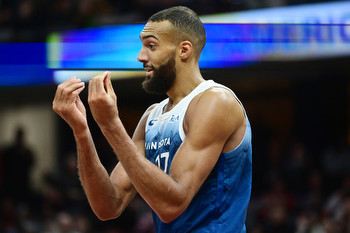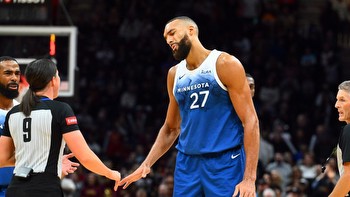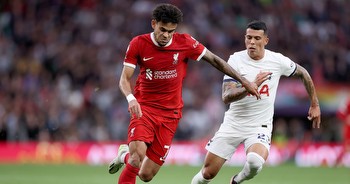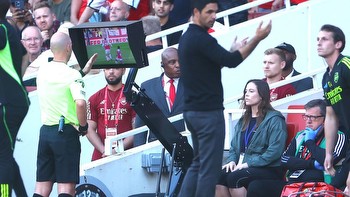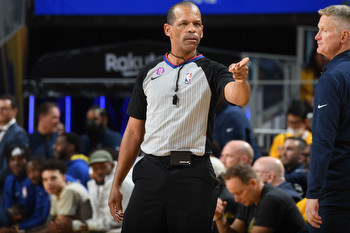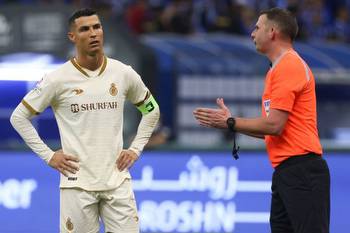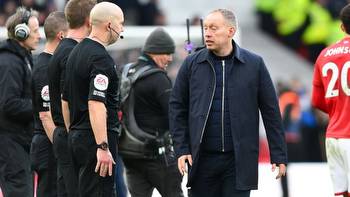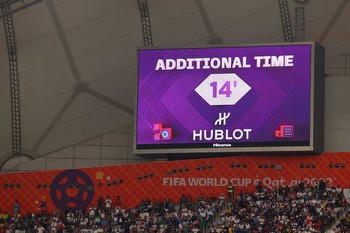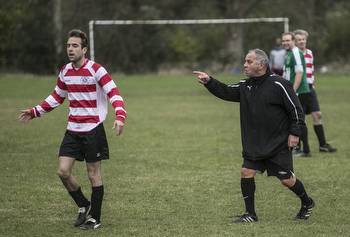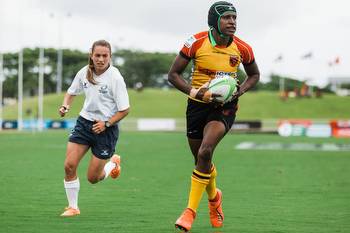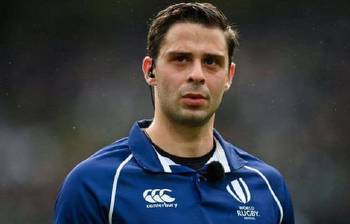The Tottenham-Liverpool offside saga highlights why Premier League referees should be paid more
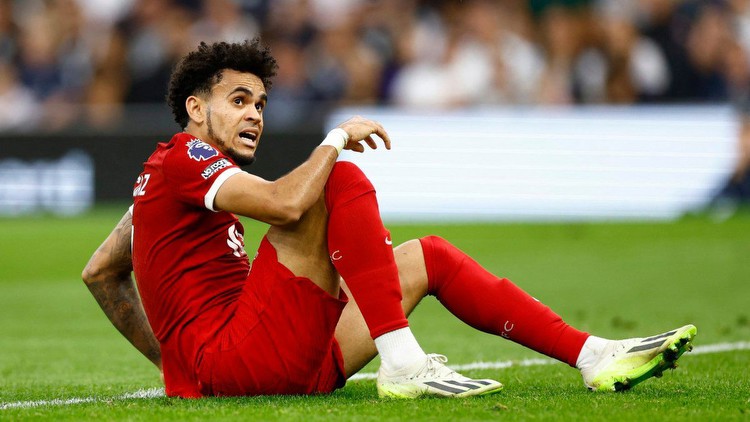
The House of Scouse demanded a blood sacrifice. Liverpool had been maliciously robbed of between one and three potential points.
The sanctity of an entire hypothetical title challenge had been banjaxed. Gamblers had lost bets and fans had their Saturdays ruined beyond comprehension. Someone had to pay.
That someone, it transpired, was video assistant referee (VAR) Darren England.
England had mistakenly told referee Simon Hooper his on-pitch decision to disallow Luis Diaz’s first-half finish was correct, thinking Hooper had actually given the goal.
Play continued from a free-kick, and neither England nor his assistant Dan Cook seemingly thought to correct Hooper. A statement released post-match explained “a significant human error occurred”.
Mooted punishments veered wildly, from retrospectively awarding Liverpool a point or replaying the game entirely to either sacking or publicly executing England, ideally after some form of ritual humiliation in either case.
The PGMOL, the English professional refereeing body, opted to remove England and Cook from their remaining weekend fixtures.
Of course, while this may temporarily satiate the baying outrage, it doesn’t really solve anything. England and Cook will likely return to both the pitch and the VAR room at Stockley Park in the coming weeks.
Except now they will be under even greater pressure and scrutiny, more than likely what caused the initial error, after being publicly shamed.
This could then contribute to more mistakes, followed by more suspensions, mistakes, suspensions, mistakes, suspensions, ad nauseum.
Another explanation for the offside snafu is that England and Cook, alongside Michael Oliver, officiated a UAE Pro League game on Thursday. They flew back to the UK on Friday, on the same schedule they would if they had taken charge of a Europa or Conference League game on Thursday – but maybe they were just tired?
Suggesting that enduring a six-hour flight after being the video referee for one game in the Gulf has brought on debilitating fatigue feels like scaremongering or confecting excuses. Yet there is a legitimate concern here.
According to reports, the Saudi Pro League is actively sounding out Premier League referees for full-time roles, most notably Oliver, who oversaw Cristiano Ronaldo’s Al Nassr vs Al Hilal in April. This is part of an attempt to pay the world’s best officials more than they would earn in their home nations for a sun-baked existence with reduced scrutiny and slower football.
Now, many may say good riddance, but that would be a mistake far worse than England’s. There are already only 20 Select Group 1 referees (judged to be capable of officiating Premier League games) as it is. Whatever your partisan preference, this isn’t a cohort that needs further diluting.
Rather than approaching the Saudi interest with disdain or scepticism, maybe the Premier League could learn something from it. Why does the richest league in the world not do everything it can to ensure its level of officiating is as high as possible? If the English refereeing talent pool isn’t up to the standard of its peers – something often said but never substantiated – why is that not the case?
The base salary before match bonuses for a new Premier League referee is £70,000, with the top band earning £200,000. After fees of £1,500 per on-field match and £850 per VAR game, that could top out at £250,000. That would be a significant sum in almost any field, but not football. There are League Two players who make more than that.
Considering how important referees are to any game, their current pay structure is somewhere between an oversight and an insult. In some cases, they could earn tenfold what they currently do and it would still be heavily disproportionate to the other 22 men they share a pitch with.
One issue is the league’s reticence to introduce foreign talent. Dermot Gallagher was Irish, but moved to England at 16. Australian Jared Gillett is the only other non-English referee ever to officiate a Premier League game. Even Gillett, a doctor of biomechanics who rapidly earned a reputation as the A-League’s finest referee, had to work his way up from the fourth tier over four years before joining Select Group 1.
The lack of international referees in England is often explained away as a language issue, but every Fifa international match official speaks English.
The Premier League draws on international influence to increase the standard across every other component, so why not officiating? Why not set aside the revenue to poach the world’s top referees before the Saudi Pro League do?
As it stands, few would blame the Premier League’s top referees if they decided to take the Saudi millions. Our comparative golden age of refereeing is decried and pilloried as some bankrupt nadir of talent, where every mistake signals either gross incompetence or conspiracy-fuelled corruption. There are fewer mistakes than ever, yet now they’re punishable by slow death by social media discourse.
A group of 20 can only make so many blood sacrifices. Let’s not allow one “significant human error” trigger a self-destructive chain of many more.

